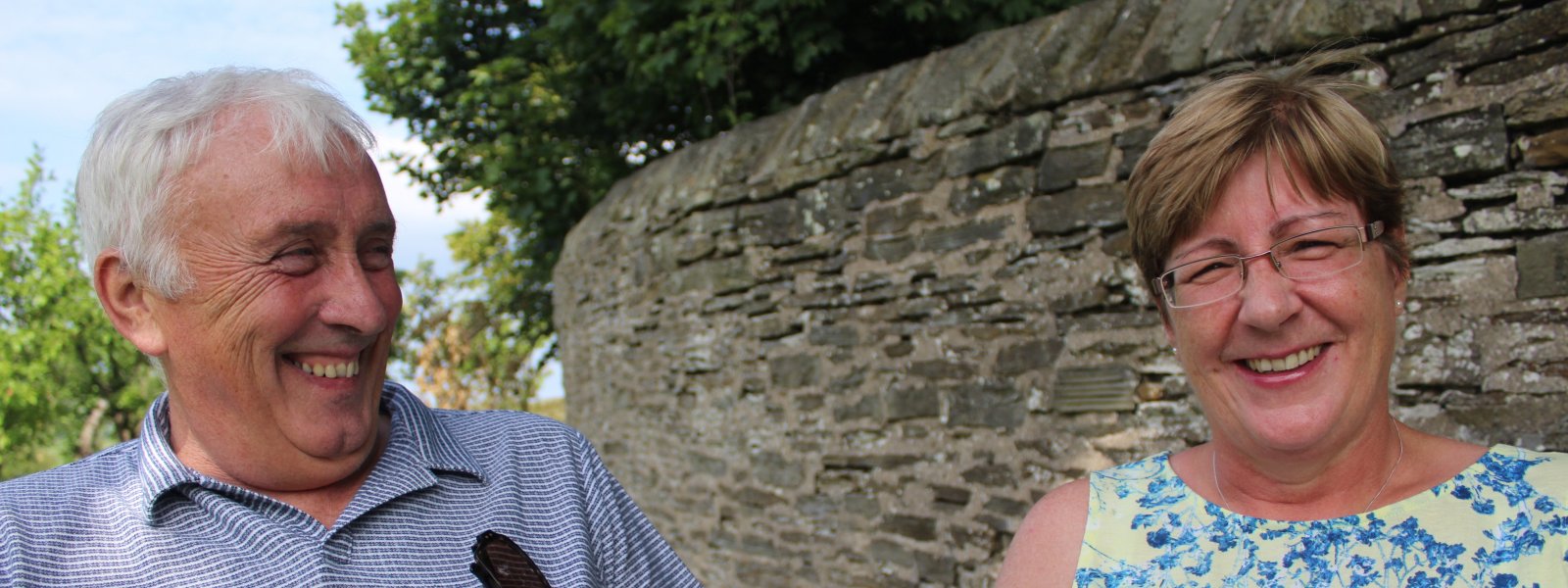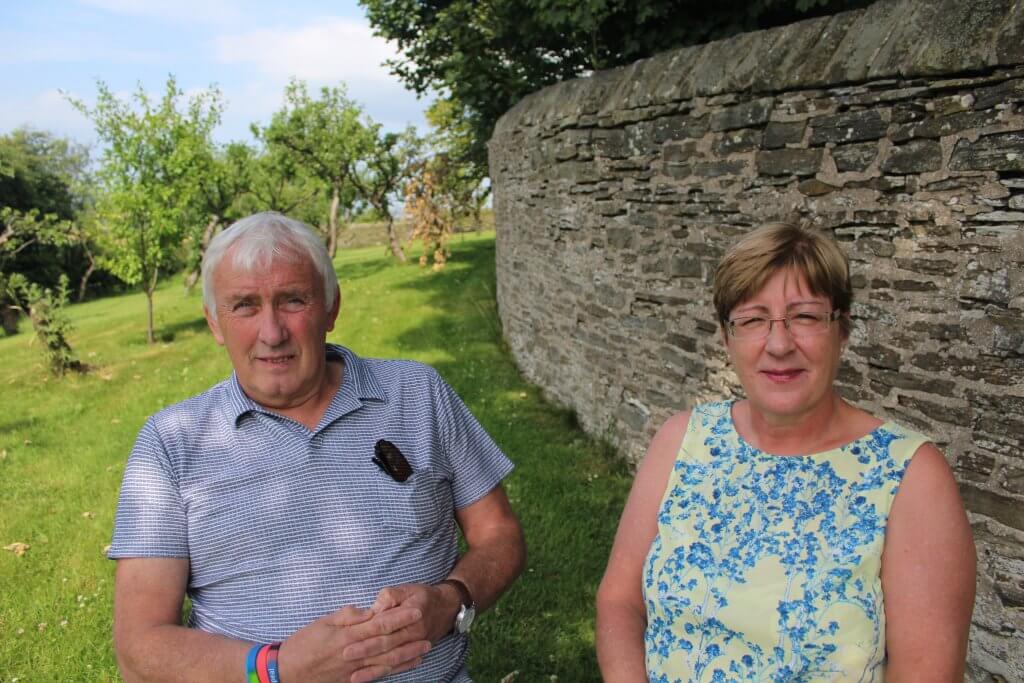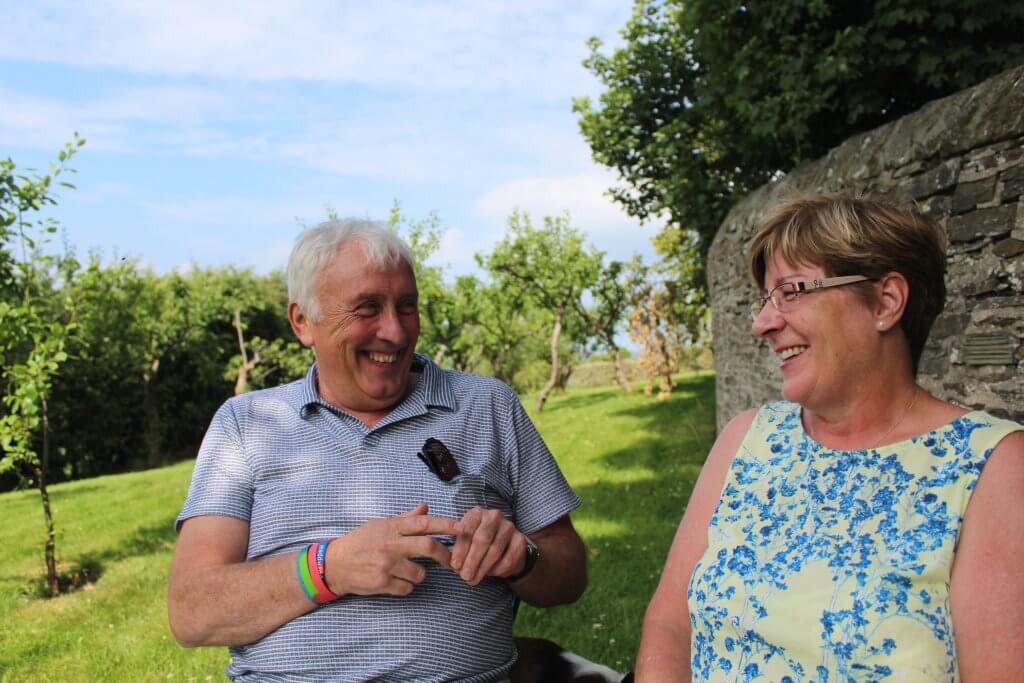Meet the carer: Kevin Rowland
Kevin Rowland lives with his partner Julie Royle in north Manchester and a year after she was diagnosed with pulmonary hypertension in 2012, he retired from his job in education to become her full-time carer.
Kevin started his career at the age of 16 as an apprentice bricklayer, before becoming a self-employed builder. At the age of 46 a chance meeting gave him the opportunity to work in construction education and after working his way up he ended his career as curriculum head manager at a college.
What does your role as Julie’s carer involve and what does a typical day look like for you?
My role as Julie’s carer changes day-to-day. If she has a bad day, she will need me constantly (and I try my best). If it’s a good day, and as Julie is a very independently-minded person, she will attempt to do things for herself. On these days and always, I am Julie’s shadow – which can annoy her but gives me peace of mind.
I do this in an attempt to protect Julie. For example, if she has a shower, I will let her go and get started but then I follow her upstairs on the pretext that I’m looking for something. Julie has tackled me about this as it’s happened many times that she’s noticed, so I had to admit to her that I was checking up on her to see if she’s ok. She now always keeps the door open so I can hear her, and she’s also said she loves that I’m so considerate even during these simple tasks. I believe Julie’s health depends on her confidence, so I try to be as discreet as possible!

“I’ve learned how to balance both our needs without losing my free spirit”
Kevin
How do you balance being a carer with looking after yourself?
This involves an infrequent game of golf with family or friends or going to visit my daughters and grandchildren, one of whom lives a long distance away. For this daughter a visit may not take place if Julie is particularly unwell, although she is quite insistent that I go as she feels it’s important for me to be with my family whenever I can. When I do go, I’m constantly concerned about Julie being home alone and can’t wait to return.
I look after my emotional wellbeing by talking to close friends and family regarding Julie’s condition as it changes daily, and we never know from one day to another how it will be.
It also helps me to keep a very good sense of humour, which is essential during tough times when Julie is feeling scared or uncertain – such as during the Covid-19 crisis.
What support do you have as an unpaid carer?
Financially, I receive no support as I have a small pension from work. I have looked into what I could get but it appears it would have a detrimental effect on the benefits that Julie receives.
Julie’s son and daughter live very close by and offer lots of emotional, physical and even financial support to both of us – which we are extremely grateful for. However, Julie finds the financial support hard to accept as she is very proud and believes they need it for themselves and their families.
What are the main challenges you face as a carer?
The main challenge that I face is balancing Julie’s independence with my need to shelter and protect her, which has emotional consequences. For example, I cancel visits to my daughter who lives more than three hours away if I consider Julie to be unsafe without me – even though she insists that I should go as she feels it’s just as important for me to have respite time to myself.
What are the rewards associated with caring for Julie?
I am Julie’s carer, but first and foremost, I have unconditional love for her.
Julie is a retired chef and teacher and one of my rewards is her desire to keep us both as fit and healthy as she can with a sensible diet, which I believe has helped her combat many aspects of this disease.
My ultimate reward will always be for us to enjoy a lengthy period of time together now and in the future.
What are the biggest things you have learned about being a carer over the last few years?
Patience, and understanding of another person’s needs, are two things I have learned and am still learning.
I’ve learned how to balance both our needs without losing my free spirit, which we constantly laugh about together – and it’s something I’m teaching my grandson all about!
I believe that as a result of living with someone with PH, I have become a much more caring and sensitive person – as rumour would have it, more than I was before!
Julie’s condition has made me more reflective as a person and I also now value time more. It is precious and should be spent with people I love and care about.
Do you have any advice for someone who has started caring for someone recently diagnosed with PH?
Firstly, quickly get rid of any anger you feel towards this disease. You will be more effective as a carer if you can focus on the here and now and not what’s happened.
Secondly, learn to listen to the professional advice, the patient’s feelings, and any other information given. Never be afraid to ask for help! Ask questions, no matter how silly you may think they are.
Share your own thoughts and feelings with someone you trust – but not the person you’re caring for if you think it might affect their wellbeing. However, you should always talk to each other about everything you feel able to as not discussing worries or concerns can be worse.
Always remember you are not perfect, and the person you’re caring for doesn’t expect you to be. You may make mistakes – as we all do anyway in life – but remember that whatever you do, your efforts are immensely appreciated by your loved ones.
Finally, never ever lose your sense of humour!


















